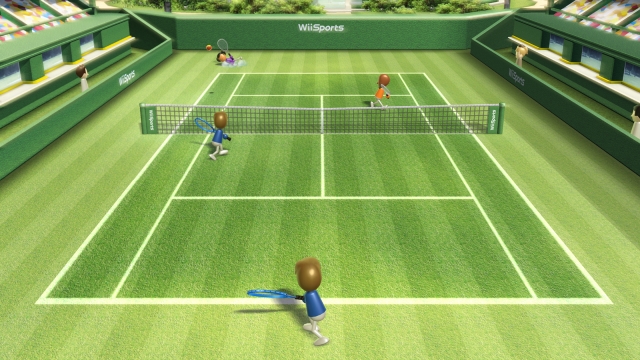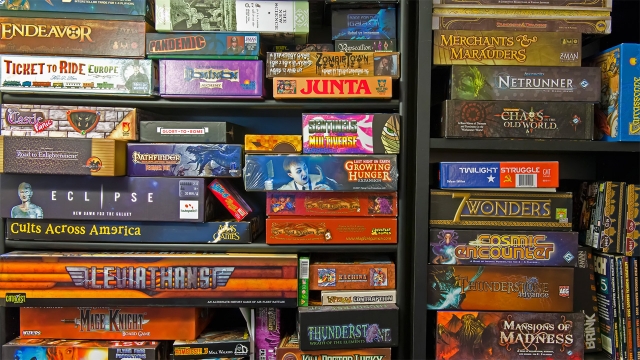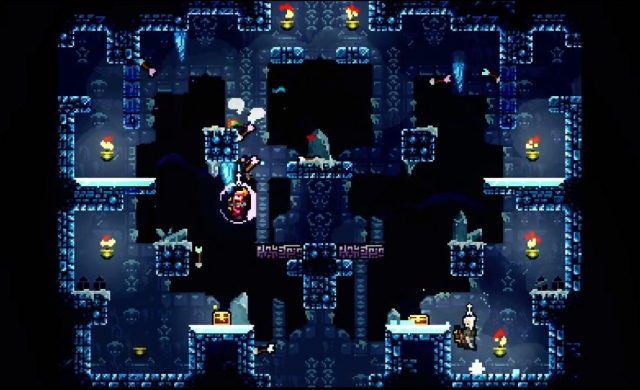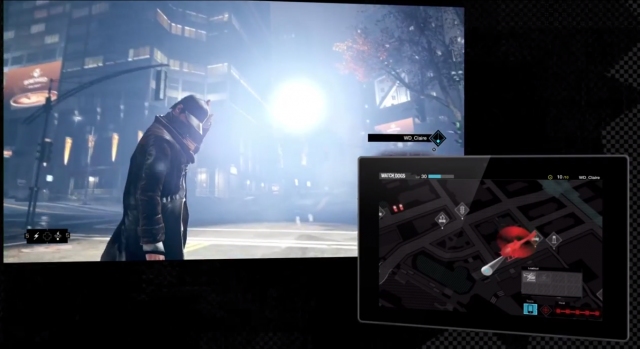
Sofa Sharers: The State of Split-Screen Address
Here we are then. After 20 weeks and now 10 editions, it’s the final edition of Sofa Sharers. As a particular passion of mine, It’s been excellent to write so much about the wonderful world of local multiplayer. With the much appreciated help of the GameGrin staff, we’ve written about so many of the classic games that define local gaming. We’ve also shared a lot of specific memories and dabbled in the future of the medium. This final article is the culmination of all those writings, as I explore the potential of local multiplayer both now and moving into the future. There are those who say that the medium is all but dead, but as this column has exposed that’s far from the truth. Split-screen and the like are here to stay, and while we may have seen a lull over the past generation, things are on the up and up.
First though, it’s probably best to accept the reality of the situation. Where once local co-op gaming was a staple feature of many games from first-party nintendo titles to top-class first person shooters, the form took a tremendous tumble around the beginning of the seventh console generation. As the PS3 and Xbox 360 hit their stride, it became increasingly difficult to find any games, let alone decent ones, that featured a local multiplayer mechanic. The Nintendo Wii remained something of a break against the tide, providing some of the biggest co-op games of all time; well, Wii Sports, basically. There were glimmers of hope in the form of the continued success of Nintendo first-party games like Mario Kart Wii and console smash hits like Call of Duty 4: Modern Warfare. On the whole though, the medium slowly but surely tailed off as we approached the eighth console generation.

During the course of Sofa Sharers I’ve seen numerous reasons for this decline, but the most obvious answer does also happen to be the most accurate. The seventh generation brought with it the rise of online multiplayer, and so out went the need to meet up and play videogames together. The organisational and logistical issues with physically meeting up became avoidable when you could just all connect to the internet and play from the comfort of your own home. At the time it was hugely exciting, I remember playing Call of Duty 3 online during the early days of PS3 and being captivated by the concept of playing with friends hundreds of miles away. Indeed, this thrill took a long time to become the norm and there are still moments I greatly enjoy while playing online. Really though, the novelty has worn off and I’ve begun to notice that folks are becoming tired with the limits of an internet connection and tired of being sharply critiqued by twelve year olds.
The first real sign of this desire for a more social gaming experience is in the gargantuan rise of boardgames. As videogames slowly limited the ability to play with a friend or many beside you, boardgames swooped in and picked up on a lot of that disappointment. I’ve been boardgaming properly for a couple of years now and it’s been one of the best hobbies I’ve ever discovered. It’s the social aspect that makes them so incredibly fun, in much the same way as playing split-screen. That ever-expanding boardgame market all but proves that there’s a lot of potential for local multiplayer games. We may have been spirited away by the mysticism of online, but it’s clear that many players miss the good ‘ol days. As I’ve said many times during Sofa Sharers, I don’t think anything in gaming beats playing a great game beside a great friend, and I think a lot of people are returning to that school of thought.

Take, for instance, some of the more recent local co-op success stories. Towerfall, in particular Towerfall: Ascension, has received a huge amount of critical and commercial success, all for a game that forces gamers to lay locally. Designer Matt Thorson has often noted that it was a conscious decision not to include an online multiplayer mode to the game, for both technical and creative reasons. Towerfall is a brilliant little game that perfectly demonstrates the power of local co-op. As one of the few next-gen titles sporting the mechanic, it has sold incredibly well for a small indie title. There’s little doubt that the local support has played a huge part in that success. Yet at the same time it as also highlighted one of the long-standing restrictions of local co-op: controllers. With the PS4 only six months old, it’s unlikely you’ll find any players with more than two Dualshock 4s, while most will have just the one. It’s little issues like this, that have long provided excuses for developers, but as Towerfall and any hit co-op game proves, we’re happy to overcome the issues if the game is worth it.
Yet there are other wrenches in the works. Our Sofa Sharers interview with Housemarque community manager Tommaso De Benetti also highlighted one other interesting point: that average player age is on the rise. Of course, this essentially means that many of the gamers who once loved playing with their mates after a long day at school can no longer do the same after an even longer day at work. For those people, it’s much more convenient to play online, especially when friends are more than likely much further apart than during childhood or teenage years. As a student, I’m beginning to see this have an effect on my own life as friends begin to move away from where we all grew up. Although, as a student, I’m also one of the key markets for local multiplayer games so I can’t exactly say I’m a prime example of the situation. Still, it’s certainly a fair point that it becomes increasingly difficult to game with friends as you get older, sad as it may sound. There are plenty of people who buck that trend, but perhaps not enough to justify most developers including a local mechanic.

It’s really not so gloom and doom though, while the traditional form of local co-op is still having a tough time (although certainly on the rise), there are some more original and modern versions being introduced by developers. Watch Dogs was released this week to more than a little hoopla, I’ll avoid making any judgement as I’ve yet to play it at time of writing, but the game does include one feature that’s very, very intriguing. I’ve brought this up in a previous edition of Sofa Sharers, but it’s worth repeating as it could represent a whole new direction and meaning for the term ‘local multiplayer’. Watch Dogs’ second screen experience is an inventive little concept that takes the familiar split-screen mechanic and modernises it. While one player controls Aiden Pearce driving through Chicago in the full game on console or PC, the second player uses a tablet or smartphone to disrupt that players’ attempts to get from one point to the other. It looks like great fun and based on the praise it’s been receiving, could be a sign of things to come.
I don’t think reinventions of the mechanic such as this are strictly necessary, but they do help sell the fact that people want to see more local options in their games. It’s genuinely sad to consider just how few next-gen titles feature the mechanic. Even the seventh generation had a select bunch of excellent local co-op games, most of which you can see in all the previous Sofa Sharers editions. Perhaps time will correct this problem, and an increasing awareness of the power of split-screen. Interestingly, Eurogamer’s Jeffrey Matulef posted a piece this past weekend titled, “Local multiplayer is back, but is it here to stay?”. It’s a good read that’ll do wonders for awareness, but he did focus somewhat too heavily upon party/casual games. These aren’t the games that are going to break new ground for the feature, although they will help. It’ll take acceptance from the big name publishers for it to become the norm once again; but with ever-increasing development costs that could be an issue.

As ever it is us, the players, who need to push for the return of true local co-op. That interview with Housemarque also demonstrated that players are demanding split-screen features in games, as the developers acknowledged that it was one of the most requested features for PS4 launch game Resogun. We need to let the developers and publishers know that it’s a feature in demand, by supporting the modern games that do it well while never forgetting those that did it excellently in the past. Sofa Sharers may be ending for now, but that’s no reason we won’t be talking about local multiplayer games moving forward. Far from it. For now though, this column is being retired with a lot of good memories behind it. I’m sure I’ll bring it back some day, but for now let’s not let split-screen die, but help it rise from the ashes like a Phoenix. It’s a phrase I’ve used for every edition of Sofa Sharers and while it’s incredibly corny, it’s never been untrue. We need to help local multiplayer rise again, or else it could fall forever.









COMMENTS